Council of Europe
Secretary General Thorbjorn Jagland opened the Cyprus Forum with the
acknowledgment that “radical measures taken in many countries to try
to balance public budgets are both necessary and understandable.”
But he also stressed: “Countries are running a high risk of
seriously undermining the European model of social cohesion.”
The Cyprus Forum for the
Future of Democracy focussed on the close connection between
democracy and social cohesion, using a political rather than a
technical approach to the topic. It
invited young people who are active in peaceful youth protests, from
the “Indignados” to “Génération précaire” for an open dialogue with
other civil society representatives. It recommended changes to get
through the current financial crisis and to avert increased social
and political upheaval, including “constructive political
engagement” and “support for new and alternative forms of democratic
expression and participation”.
In a mixture of
plenary and
parallel
working sessions, the participants
addressed the main trends in and challenges to stronger linkages
between democracy and social cohesion and discuss how representation
and democratic participation can be strengthened through social
dialogue and civic engagement.
In the light of the push
towards democracy taking place in the Southern and Eastern
Mediterranean region, these countries were involved in this year’s
Forum, both as participants and in widening the debate to encompass
their aspirations and experiences in building democracy and
fostering social cohesion.
Outputs of the Forum are expected to include input for the 2012
Forum session and recommendations for further action by the Council
of Europe and other stakeholders in the fields of democracy and
social cohesion.
___________________________
Council of Europe's acquis on democracy
- Quotations
"Democracy
is the government of the people by the people. Its basic principles
are the rule of law and the separation of powers. Under a democratic
system, the rule of law governs the functioning of the government
and administration, and confers on judges the power to verify
whether the administration has complied with that rule."
Council of Europe Parliamentary Assembly - Resolution 800 (1983) on
the principles of democracy
"Strengthening
local and regional democracy and securing respect for human rights
are among the Council of Europe's main aims because a properly
functioning democracy provides one of the foundations for peace and
stability in Europe."
Council of Europe Conference of Ministers responsible for Local and
Regional Government - "Good local and regional governance in
turbulent times: the challenge of change" (16th session, Utrecht,
16-17 November 2009).
"(..) It is essential that young people learn about participation
and democracy while in school and that courses on democracy,
participation and citizenship are available and properly resourced.
However school must also be a place where young people experience
democracy in action and where their participation in decision-making
is supported, promoted and is seen as effective."
Committee of Ministers Recommendation Rec(2004)13 to member states
on the participation of young people in local and regional
life (adopted by the committee of Ministers on 17 November 2004, at
the 904th meeting of the Ministers' Deputies).
"Continuing
to build a truly just society is certainly not simple. It requires
political will, popular support and resources. It requires
legislation influenced by human rights principles; a competent, non-corrupt
judiciary; a disciplined police force; a system for independent
monitoring; a political culture which is open for criticism and
ready to take action for reform. And it requires the courage to
dream."
Thomas Hammarberg, Council of Europe
Commissioner for Human Rights
"Particular
emphasis must also be placed on the principle of democracy, which
calls for the participation of the largest possible number of people
in policymaking and in politics, on the constant concern of all
democrats to extend and improve the democratic functioning of our
societies, on the possibility of bringing new blood into the
electorate and thus giving greater expression to the concerns of the
younger generation, and on the importance of effectively combating
the growing danger of the exclusion of young people and the concern
to do everything possible to facilitate their integration into the
structures of society."
Parliamentary Assembly Resolution 1826 (2011) on “Expansion of
democracy by lowering the voting age to 16”
___________________________
Council of Europe's acquis on social
cohesion - Quotations
New
Strategy and Council of Europe Action Plan for social cohesion
“The Council of Europe defines social cohesion as the capacity of a
society to ensure the well-being of all its members – minimising
disparities and avoiding marginalisation – to manage differences and
divisions and ensure the means of achieving welfare for all members.
Social cohesion is a political concept that is essential for the
fulfilment of the three core values of the Council of Europe: human
rights, democracy and the rule of law.”
(..)
The
Council of Europe strategy for social cohesion “is based on four
pillars:
-
reinvesting in social rights and a cohesive society;
-
building a Europe of responsibilities that are both shared and
social;
-
strengthening representation and democratic decision making and
expanding social dialogue and civic engagement;
-
building a secure future for all.”
July 2010
Equality of rights
“The equal rights of men and women, proclaimed in the preamble to
the United Nations Charter, cannot and must not be denied or ignored,
least of all in a democratic society. Under no circumstances can
respect for group identity or religious belief be invoked to justify
the exclusion of girls from any form of education which is available
to boys, or the seclusion of adult women from normal interaction
with society outside their home.”
Report of the Group of Eminent Persons on "Living
together: Combining diversity and freedom in 21st-century Europe -
April 2011
Citizenship
“Since residents on the territory of a state are required to obey
its laws, we believe, as a matter of fundamental democratic
principle, that they should have a say in the making of those laws.
All states should therefore strive to extend the full rights and
obligations of citizenship, including the right to vote, to as many
of their resident population as possible.”
Report of the Group of Eminent Persons on "Living together:
Combining diversity and freedom in 21st-century Europe" -
April 2011
Empowerment
"Empowering
citizens to act represents a political commitment to creating
opportunities and motivation, especially through dialogue and
deliberation. Public authorities should ensure that there are
appropriate and sufficient representative structures to encourage
all members of society to participate, with particular attention
being paid to citizens and groups of citizens who have more
difficulty becoming actively involved or who, de facto, remain on
the sidelines of public life.”
New Strategy and Council of Europe
Action Plan for social cohesion - July 2010
“(..) in order to live together in peace people need skills or
“competences” which are not automatically acquired, but if they are
to be maintained for life, they need to be taught and practised from
an early age. School teachers obviously have a vital role to play in
helping children develop these skills, but informal education and
life-long educational programmes can also play an important role in
sustaining them, as well as helping adults who have missed out on
this aspect of full-time education.”
Report of the Group of Eminent Persons on "Living together:
Combining diversity and freedom in 21st-century Europe" - April 2011
Migrants
“People who come to live in a new country, and their descendants,
should not be expected to leave their faith, culture or identity
behind. But, like everyone else, they must obey the law, should
learn the language used by the majority of their new neighbours, and
should strive to make themselves useful to the society in which they
live.” (..)
“The
authorities, the police and the courts at all levels, in all member
states of the Council of Europe, must do everything in their power
to ensure that immigrants (whether documented or not), people of
recent migrant origin and members of minorities are protected, and
that those who subject them to violence or illegal abuse or
exploitation are apprehended and punished according to the law.”
Report of the Group of Eminent Persons on "Living together:
Combining diversity and freedom in 21st-century Europe" - April 2011
Roma
"(..) drawing attention to its
Resolution 1740 (2010) on the situation of Roma in Europe and
relevant activities of the Council of Europe, the Assembly urges the
member states of the Council of Europe to: (..)
improve the safety and security of Roma and do their utmost to
eradicate racism and xenophobia by working actively and persistently
at national and local levels in order to enhance understanding and
communication between Roma and non-Roma in society. To do this,
member states should use, inter alia, the toolkit of the Council of
Europe Dosta! Campaign “Dosta! Enough! Go beyond prejudice, discover
the Roma!” -
Parliamentary Assembly Resolution
1768 (2010)
People
in disadvantaged situations
“Competent authorities at all levels should identify groups
suffering from particular socio-economic disadvantages (such as
disproportionately high unemployment, low levels of educational
attainment and/or family income, inadequate housing) and make
special efforts, with allocation of appropriate resources, to enable
members of such groups, especially children and the young, to
overcome these disadvantages and enjoy genuine equality of
opportunity with the rest of the population.”
Report of the Group of Eminent Persons on "Living together:
Combining diversity and freedom in 21st-century Europe"
- April 2011
"Social mobility, including that of migrants, should be promoted.
Societies must offer a secure future and perspectives for everyone,
for every group of society, while providing extra support for those
in disadvantaged situations." Everyone must have the right to be
creative, to give sense and perspective to their own lives, and to
take risks.
New Strategy and Council of Europe
Action Plan for social cohesion - July 2010
Intercultural dialogue
“An appreciation of our diverse cultural background should include
knowledge and understanding of the major world religions and
nonreligious convictions and their role in society. Another
important aim is to instil in young people an appreciation of the
social and cultural diversity of Europe, encompassing its recent
immigrant communities as well as those whose European roots extend
through centuries.”
"Intercultural
dialogue has an important role to play in this regard. It allows us
to prevent ethnic, religious, linguistic and cultural divides. It
enables us to move forward together, to deal with our different
identities constructively and democratically on the basis of shared
universal values."
White Paper on Intercultural Dialogue “Living together as equals and
in dignity”
"Europe is multicultural and European peoples have proved their
capacity to live together in diversity and build together their
common future. Although multiculturalism is facing increasing
difficulties at national level in various European countries, the
Assembly firmly believes that assimilation is not an alternative.
The response to these difficulties is an intercultural approach
which implies an active interaction of the culturally different
groups within society in order to develop the best model of living
together. The strengthening of common European values and identity
should be promoted in a way which does not eliminate the different
cultures of specific groups, but preserves and incorporates their
specificities in the common European framework."
Parliamentary Assembly Recommendation 1975 (2011) -
Living together in 21st-century Europe: follow-up to the report of
the Group of Eminent Persons of the Council of Europe
Shared responsibilities
“To
engender a widely-held sense of social responsibility, all
stakeholders – not just governments and other public authorities but
also social partners, civil society, citizens, corporate partners
and the media – should recognise the need to act responsibly and
help to develop awareness of shared or co-responsibilities.”
New Strategy and Council of Europe
Action Plan for social cohesion - July 2010
What did you want to see on this page but didn't ? Tell us !
Council of Europe
- Forum for the Future of Democracy Secretariat
Directorate General of Democracy and Political Affairs
67075 Strasbourg Cedex
suzette.saint-marc[at]coe.int


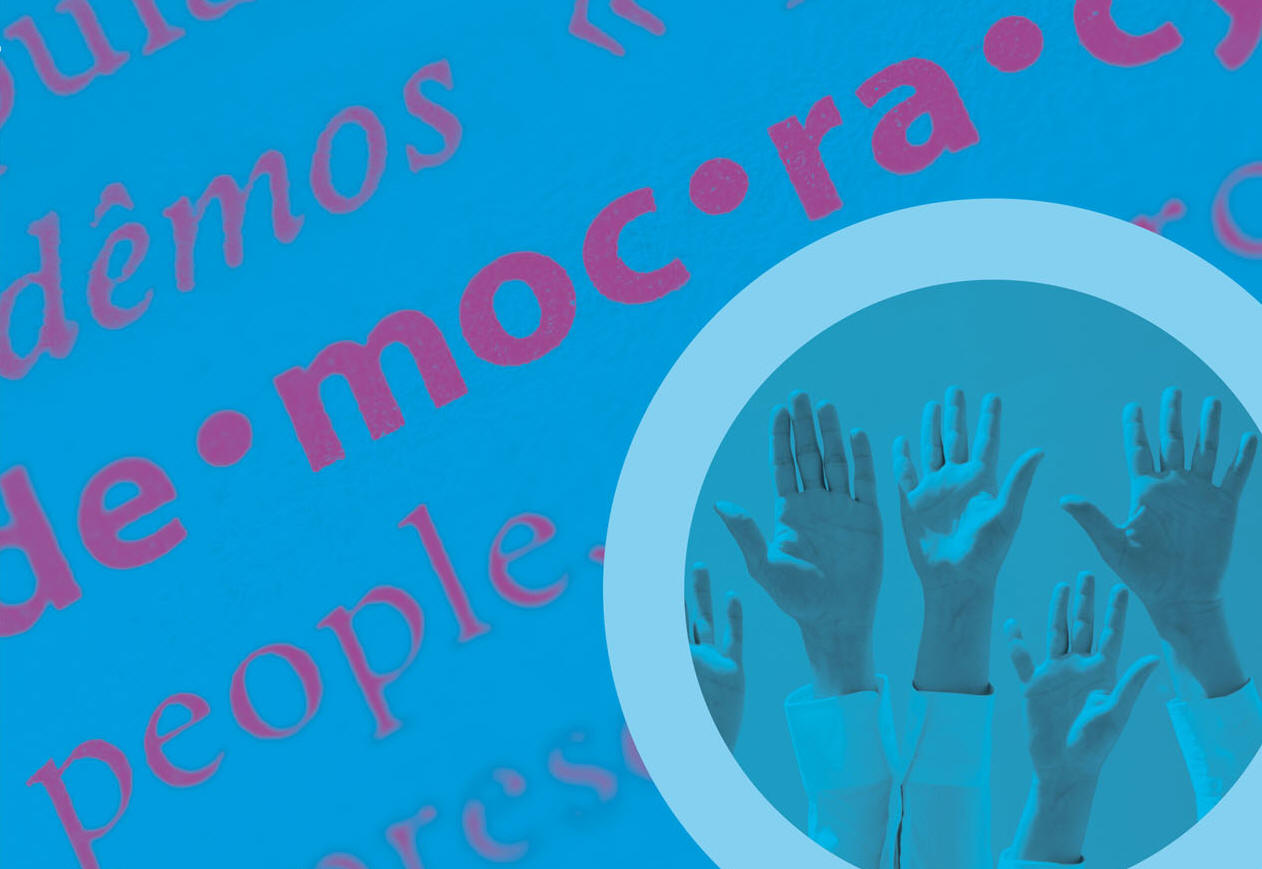
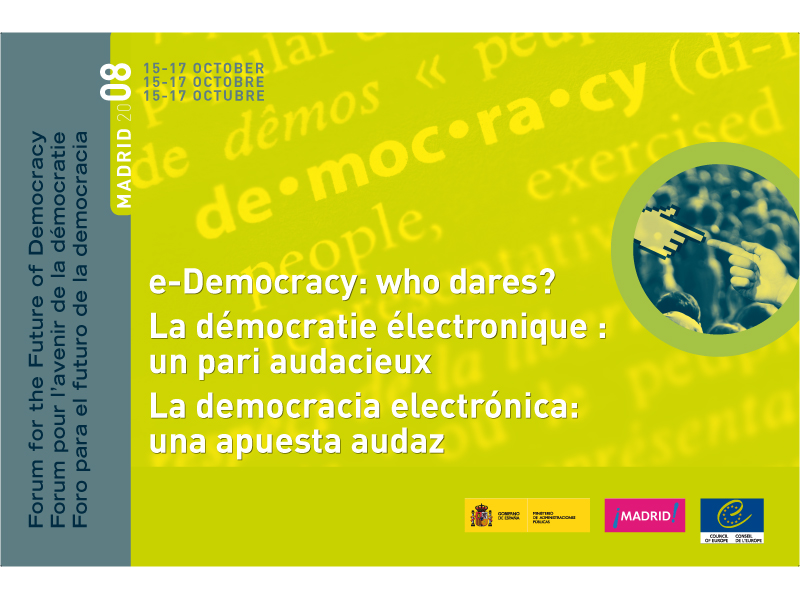
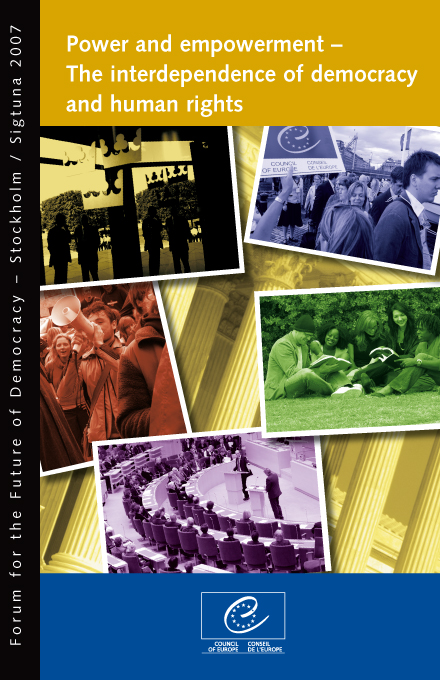
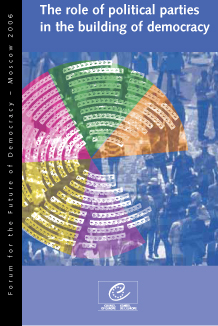
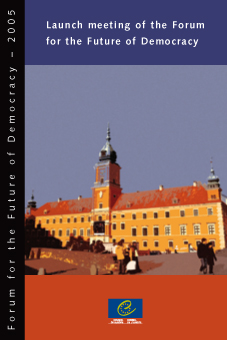
 Print
Print  Send
Send  FRANCAIS
FRANCAIS 



